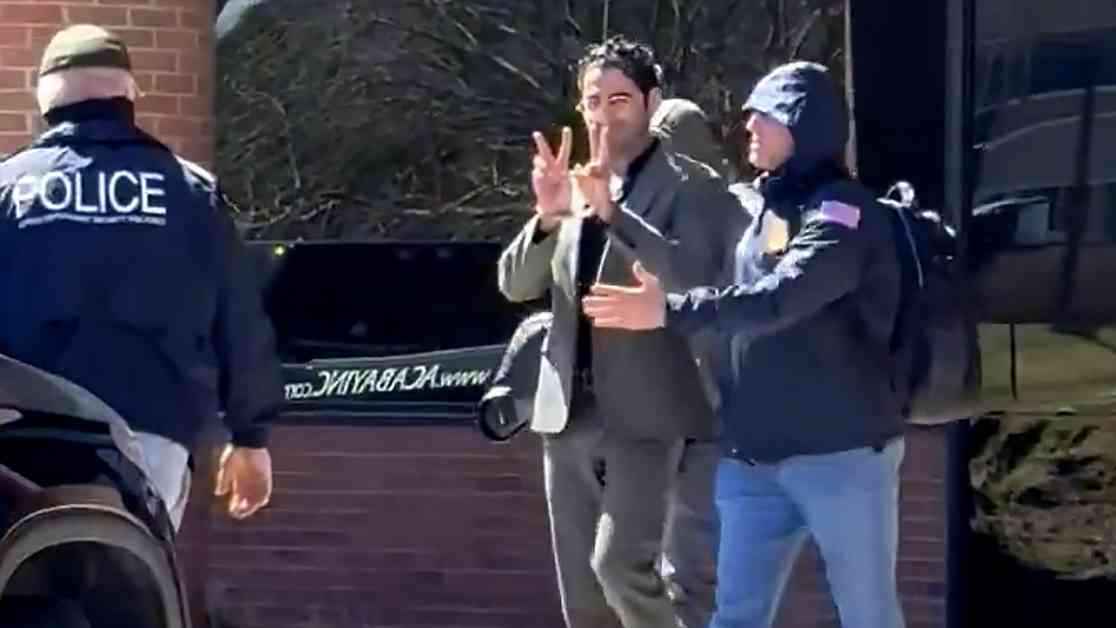A Columbia University student recently found himself entangled in a legal battle that has captured national attention. Mohsen Mahdawi, a co-founder of the Palestinian Student Union at the university, was arrested by Department of Homeland Security agents following his naturalization interview in Vermont. His arrest, deemed unlawful by his attorneys, has raised concerns about free speech and discrimination.
A Student’s Advocacy Journey
Mahdawi, a Palestinian immigrant who has been a legal resident in the U.S. for the past decade, has been actively involved in advocating for Palestinian rights on Columbia’s campus. His vocal criticism of Israel’s military campaign in Gaza and his role in student protests have made him a prominent figure in the university community. However, his recent arrest has drawn attention to the potential consequences of his activism.
Born and raised in a refugee camp in the West Bank, Mahdawi’s personal experiences have fueled his advocacy work. In a petition, he shared the traumatic story of witnessing an Israeli soldier fatally shoot his best friend when he was a child. This background has shaped his beliefs and actions, leading him to fear potential persecution if deported back to the West Bank.
Legal Battles and Political Motivations
Mahdawi’s arrest, similar to that of his colleague Mahmoud Khalil, has been linked to a controversial provision in the Immigration and Nationality Act. This provision allows the government to deport individuals if their activities are deemed to have adverse foreign policy consequences. In Khalil’s case, Secretary of State Marco Rubio cited alleged involvement in “antisemitic protests” as grounds for deportation.
The legal battle surrounding Mahdawi and Khalil highlights the complex intersection of immigration law, free speech, and political motivations. The Trump administration’s crackdown on individuals critical of Israel’s policies has raised concerns about the targeting of activists and the erosion of First Amendment rights.
ABC News’ coverage of the case has shed light on the challenges faced by individuals like Mahdawi and Khalil, who find themselves in the crosshairs of government authorities due to their advocacy work. The broader implications of these cases, both legally and politically, underscore the importance of protecting free speech and safeguarding the rights of immigrants in the United States.
As the legal proceedings unfold, Mahdawi’s future hangs in the balance. His attorneys continue to fight for his rights, invoking constitutional protections and challenging the government’s actions. The outcome of his case could have far-reaching implications for activists, immigrants, and advocates of free speech across the country.
The story of Mohsen Mahdawi serves as a reminder of the complexities of immigration, activism, and political discourse in today’s society. As the case continues to garner attention and spark debate, it underscores the need for a nuanced approach to issues of free speech, foreign policy, and individual rights in the United States. The fate of Mahdawi and others like him will shape the landscape of advocacy and immigration for years to come.














